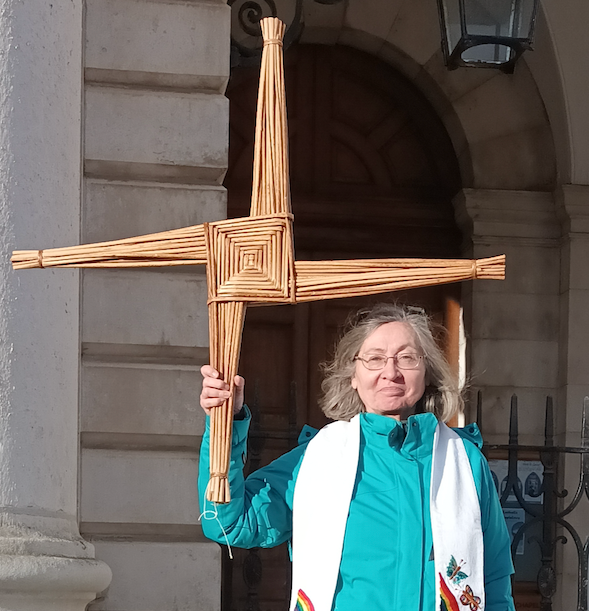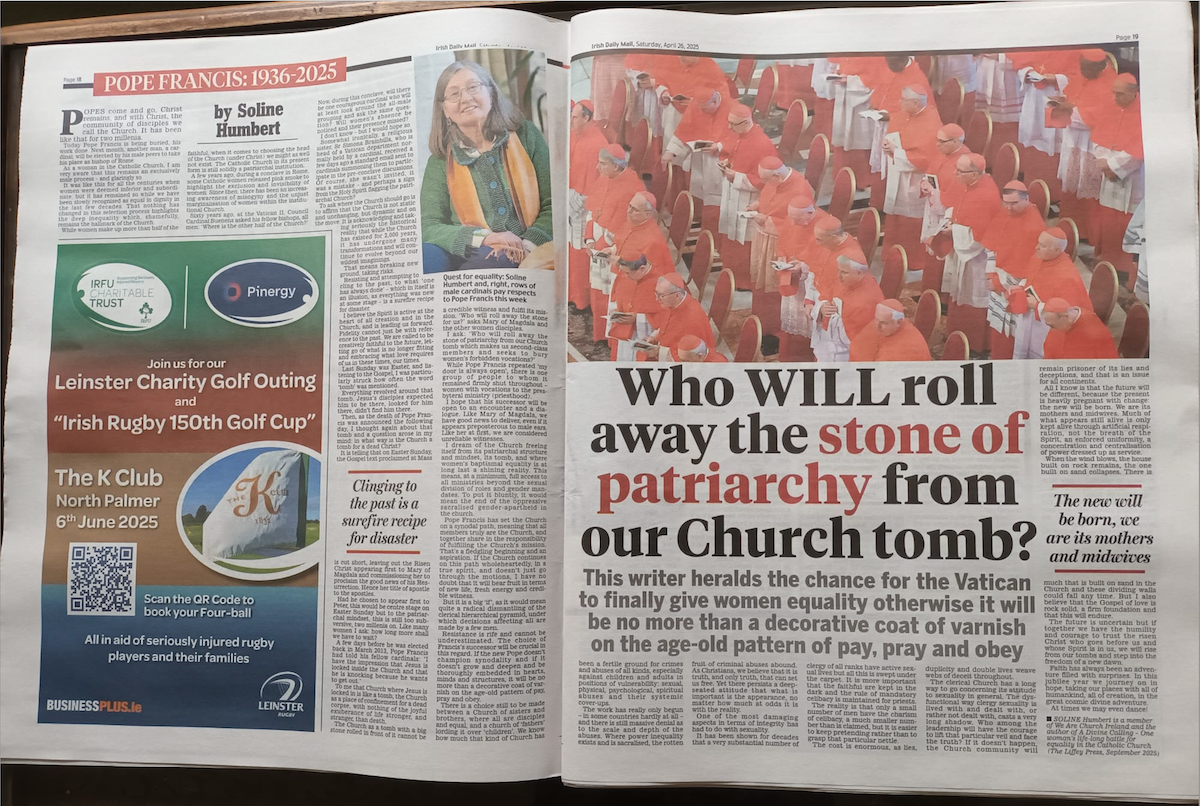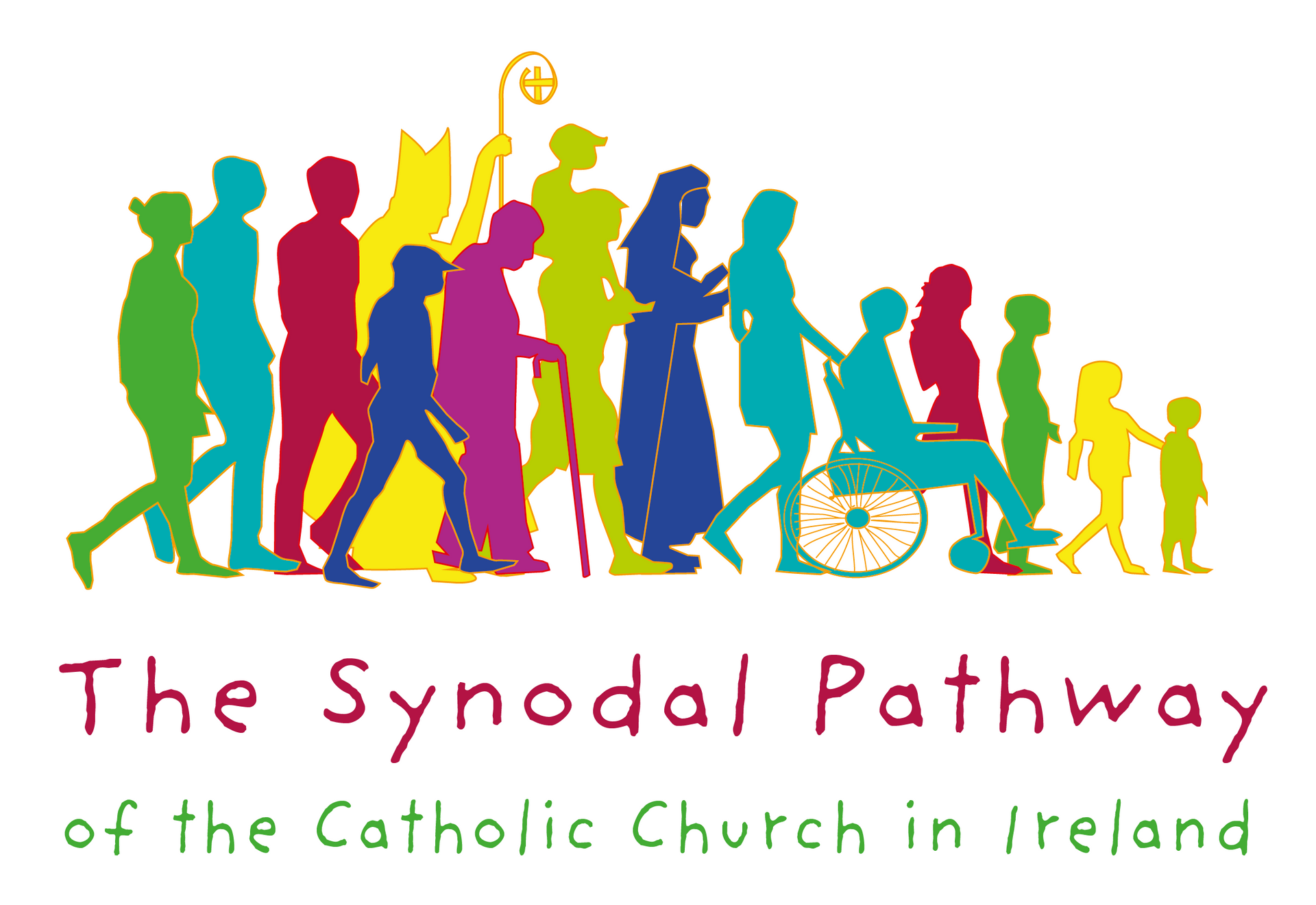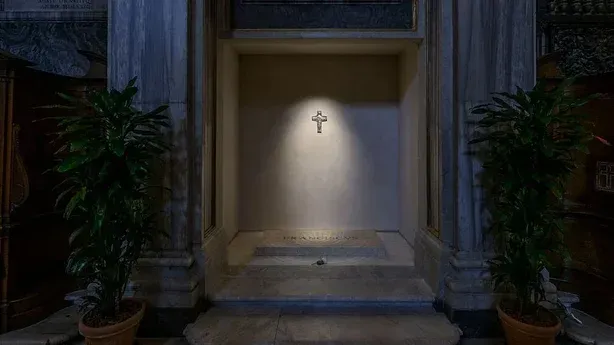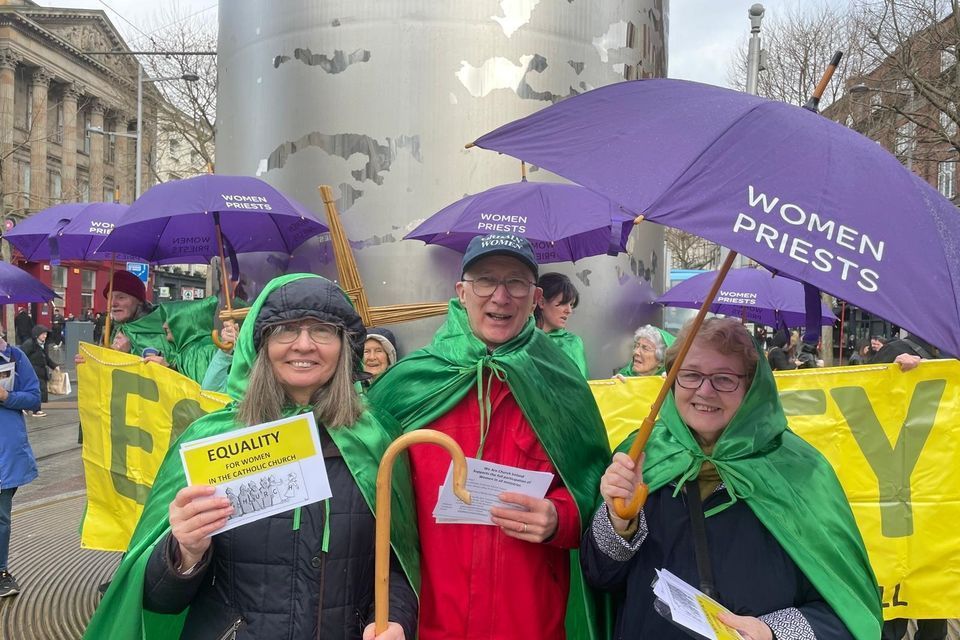Gabriel Daly OSA launches BASIC pamphlet Women-Called To Be Priests on 5 November 1996
"This is the way theology should be done: it is an enquiry into the meaning of faith"
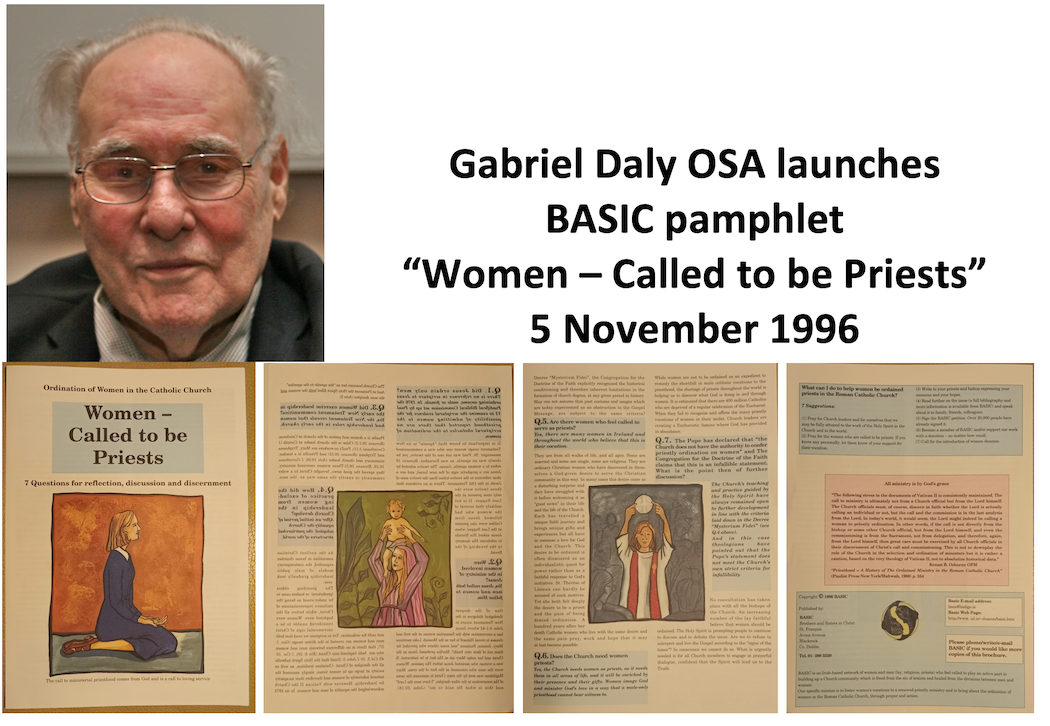
The following address was given by Gabriel Daly OSA at the launch of the BASIC pamphlet Women-Called To Be Priests on 5.November 1996
[Note: BASIC was incorporated into WAC Ireland in 2012]
I am honoured to be asked to speak at the launching of this admirable and impressive pamphlet - admirable and impressive not merely in its content and presentation but also in its form. It proposes seven questions for reflection, discussion and discernment. That is the way theology should be done: it is an inquiry into the meaning of faith
Nineteenth century Neo-scholastic theology turned questions into theses:
and theses, which were intended as definitive statements, make no pretence of being inquiries. They tell you precisely what your conclusion must be before you have begun to study them. It is the form in which all the older clergy (including myself) learned their theology. If there wasn't a thesis "Woman may not be ordained", it was only because the matter had not even occurred to the textbook authors who lived in a very sheltered world which had successfully managed to keep the real world at bay.
The pamphlet we are launching this evening deals in questions. The answers it gives to those questions are marked by a calm reasonableness which invites the reader to reflect, discuss, and discern. It doesn't throw down a gauntlet, but it advances a tough challenge. It speaks with the voice of conviction without the rhetoric partisanship
In this respect it is like Soline Vatinel, who has the marvellous gift of being able to present her case with transparent conviction and sincerity and yet without aggressiveness or anger. I say this in full awareness of how much anger she and many other women have so much reason to feel. It is probably wiser not to fight fundamentalism with its own weapons and the case against the ordination of women has at least some of the marks of fundamentalism - an intrinsically unconvincing case enforced by pure diktat.
In spite of the good example given by this pamphlet, I have already fallen into using the characteristically male metaphor of battle! Let me instead refer to the goal of women's ordination, a goal which will be achieved by prayer and by the quality of theological and historical reasoning to be found in this splendid pamphlet.
There is much to be learned from the experience of other Christian Churches as they achieved their dream of female ordination. There is the lesson and inspiration of their perseverance and their Christian hope. But there is one major difference between their struggle and the struggle for the same goal in the Roman Catholic Church. In the Catholic church theological and moral issues have a depressing way of reducing themselves to questions of authority, and this diverts attention away from the substantive issue. For this reason the critique of patriarchy is far more relevant to the ordination of women in the Roman Catholic church than it has been in other Churches which have structures that allows their members to communicate freely and without fear.
Question 7 in the pamphlet realistically recognizes the particular difficulty which Catholics have to face. This and other questions posed in this pamphlet are models of how to communicate in the Church of today. This is theological argument of a high order. It puts its points with clarity and without rhetoric. It does not try to bully or hector; and it is all the more persuasive for that. It deserves a response from those who disagree with the case it advances. Will it gets such a response? One can only fear that it will not be responded to by those who have tried to put the matter beyond discussion by a declaration that it has been settled, when quite plainly it has not.
How can a question be regarded as settled when there has been no consultation or discussion. How can a question be regarded as settled when a concerned group like BASIC plainly demonstrated that it is for them a matter of continuing and anguished concern?
The attempt to foreclose on further discussion is crass. After all, even the most solemn of doctrines can - indeed must - be discussed, if they are to remain alive.
An unquestioned doctrine is a dead doctrine. The questions posed in this pamphlet are genuine and sincere; they will not go away just because an embargo has been arbitrarily imposed on discussion of them.
The Congregation for the Doctrine of the Faith's attempt to declare a recent pronouncement of the Pope to be infallible was a serious tactical error of judgment, like the decision to recall the English version of the catechism so that sexist language could be put into it. Even conservative opinion shows signs of being shaken by this unblushing use of crude power.
Real, active, faithful and loyal members of the church are asking seriously concerned questions about an issue which is crucially important to them. One does not have to be a paragon of pastoral solicitude to appreciate the importance of dialogue here. This is not simply a question of women's ordination: it is a question of women's membership and status in the church.
There are already ominous signs that extreme feminists are saying "Forget about ordination, it's a male concept anyway. Come and join us in the post Christian movement." The situation has already arisen in the USA. It should be plain to all church people that, in an unbelieving world, concern about women's ordination is an expression of Christian faith.
The Pope's statement that the church does not have the authority to ordain women is unusual in the form it takes. You will not find many instances in Church history where senior prelates declared their lack of authority- quite the contrary .
One can think of occasions were such a declaration would have been truly appropriate - for example when Pope Gregory VII turned the bishopric and patriarchate of Rome into a monarchy in the 11th century. It would be quite proper to ask where he, and other medieval popes like Boniface VIII, found the authority to make such a decision. The ordination of women has the merit of being about the values of the Kingdom of God and the service of God's people.
Another unhappily relevant feature of Church history has been the centralization of power in Roman hands since the middle of the 19th century, with a consequent draining away of authority from the local churches and their bishops. Bishops regained much of their authority at Vatican II with their teaching on collegiality; but then they went away, leaving the implementation of their teaching to the Roman bureaucracy. The result is that collegiality is now a dead letter. Synods have proved to be powerless and subject to manipulation. They issue no statements of their own but leave it to the Bishop of Rome to compose a document in their name. Even worse than that, bishops are now under instruction not to depart from the Roman position on any question .
I do not have to spell out the implications of all this for women's ordination in the Catholic church. We have arrived at a situation where we have no way of knowing what a bishop really thinks about an issue as distinct from what he is expected to say by Rome. This is surely an unwarranted intrusion on episcopal freedom and autonomy.
We have the right to hope that eventually the matter will be discussed at a General Council, after the entire church has been consulted at local level.
The cause of women's ordination in the Catholic Church is already a central part of the movement for a more participative and communitarian church. It bears out what the best of the feminist theologians are saying : that their cause is not merely about women but about human beings.
BASIC is making a magnificent contribution to that cause and this pamphlet is an eloquent model of how it can be pursued.
